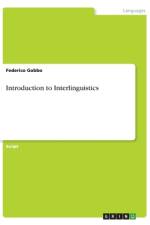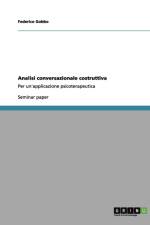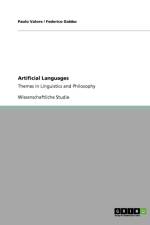von Federico Gobbo
52,95 €
Script from the year 2020 in the subject Speech Science / Linguistics, grade: 1.0, University of Amsterdam (ACLC), course: Introduction to Interlinguistics (105218036Y), language: English, abstract: This book is the result of the Lecture Notes produced for the class "Introduction to Interlinguistics" held at the University of Amsterdam during my first mandate as Special Chair holder there (2014-2019). This means that the intended readers are my students, who may come from the Humanities, such as English Studies or Philosophy, as well as from more formally oriented curricula, such as Logic or Artificial Intelligence. The structure of the volume follows the structure of the class: there are seven chapters that correspond to the seven weeks of contact hours. Thus, the expression "in this chapter" is equivalent to "in this week". The first three chapters form Part I, which gives the theoretical basis, while the second three chapters of Part II apply the theory to major case studies in Interlinguistics.Please note that there is more material than I succeed to cover in the classroom ¿ I am very ambitious ¿ and that I explain in class the content of this book. This means that some sections may be skipped, depending on the specific class. For details, please pay attention to the official communication sent to class members.In studying this book you will acquire the conceptual toolbox of the working interlinguist. Technical terms and important names are indicated in bold and referred to the index by the end of the book, to facilitate students.Readers who do not belong to my students¿ cohorts may also appreciate, as ¿ to the best of my knowledge ¿ there is no such book published in English yet. Comparable published works in other languages are: first, the book by Barandovska [1995], written for advanced Esperanto speakers enrolled the programme in Interlinguistics Studies at the Adam Mickiewicz University in Poznan ¿; second, my short textbook in Italian [Gobbo, 2009], used at the Universities of Milan and Turin, which is now out-of-date, as it does not include Hollywood linguistics at all, being written just before the publication of Nävi and Dothraki; last, the brand new Astori [2020], also in Italian, in press while I am writing these few lines, that will be used at the University of Parma. However, it is important to keep in mind that I wrote this lecture notes for absolute beginners who study at the BA level; neither experts nor researchers are the ideal readers here.




